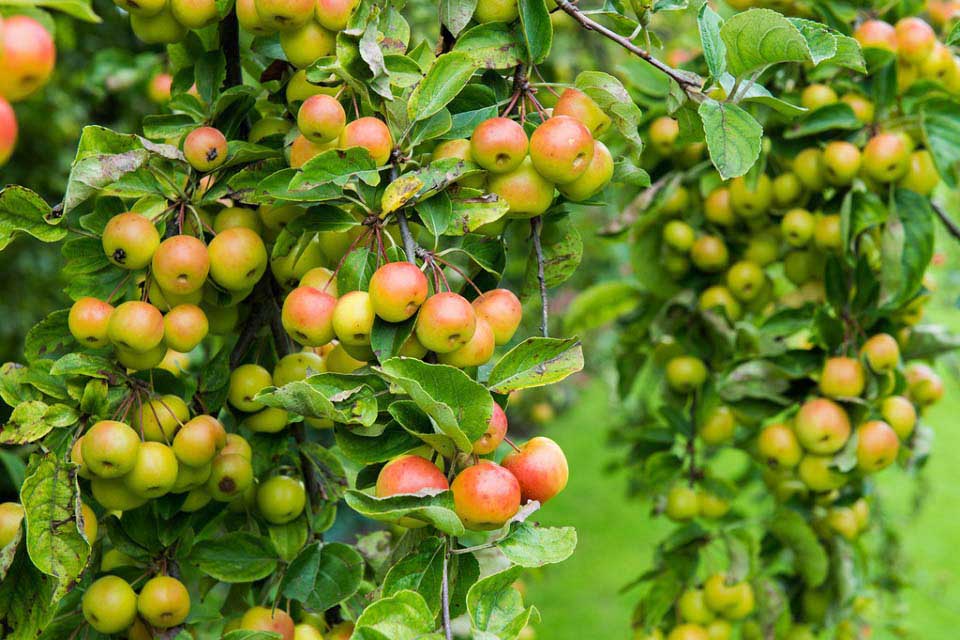Apple
Afal. Quert. Pryus malus.
The apple tree is heterozygous meaning that it requires a different species and an insect partner to pollinate it, so each new plant is a new species. There are over 7,500 known varieties of apple tree world wide and the only way to propagate the same species is by grafting. The National Apple Collection at Brogdale Horticultural Trust in Faversham has almost 2,500 varieties with names like Acklam Russets, Barnack Beauty, Nutmeg Pippin and Knobby Russet. The charity Common Ground started Apple Day in 1990 and each year on October 21st there are festivals and events held all over the country raising awareness of the wonderful varieties.
The single variety native to Britain is the crab apple – a small tree with brown flaky bark, sometimes bearing the thorns all crab apples once had, being of the rose family. It has soft oval leaves with pointed tips that are food for the caterpillars of many moths. It is home to over 90 species of insect and has lovely pink flowers in spring, providing food for many pollinators and especially supporting our bee populations. The small bitter fruit can be made into jam, jelly and wine and is food for many birds and animals including mice, voles, foxes, badgers, rabbits, deer and of course wild boar. The pips have a cyanide coating and so pass through the digestive systems of these animals ensuring that any new trees are propagated at some distance from the parent.
Revered by the Druids as one of the seven chief trees and the most common to host mistletoe, the apple is associated with shapeshifting and journeys to the Otherworld. Magical apple trees feature in many folk and fairy tales. The name Avalon is derived from an old Irish word meaning “place of apple trees” and in this context the tree symbolises the hardship, sacrifice and self-denial that the warrior/magician has to undergo to make the journey to Avalon. Apple was considered food of the gods and a universal symbol of love, fertility, generosity and abundance.
Status at Cambrian Wildwood: Present

